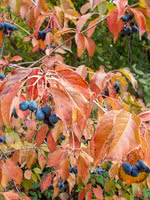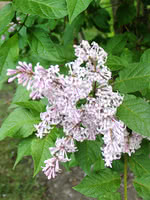Mon-Fri 9am - 5pm Mountain time
Villosa Lilac vs Nannyberry
Viburnum lentago
Syringa villosa
NOT AVAILABLE THIS SEASON - MIGHT RETURN
Nannyberry is a hardy shrub known for attracting wildlife. Its clusters of white flowers and tasty berries are suitable for bees, birds, and other animals.
Nannyberry is also used in urban yards and landscaping. This shrub makes a beautiful ornamental and is small enough to grow underneath power lines. Its berries can be eaten fresh or used in baking and preserves.
Makes a great hedge or privacy screen in an urban yard. Often has great red fall color to complement its spring flowers.
Popular Hedge Species!
Villosa Lilac is a relatively large and cold hardy shrub. It provides excellent privacy and wind protection.
Its fragrant, pink flowers grow in clusters at the end of its branches during mid to late summer and fade to a light pink over time. Villosa Lilac grows quickly and is drought resistant, making it suitable for the outer row of a shelterbelt. Its roots are non-suckering and it does not compete with nearby crops.
If you alternate Villosa Lilac and Common Purple Lilac in your hedge, your hedge will flower for more of the summer than if you plant either Lilac on its own.
Note: Villosa Lilac is more salt-tolerant than most of our stock.
Nannyberry Quick Facts
Villosa Lilac Quick Facts
In row spacing: 0.9 m (3 ft)

